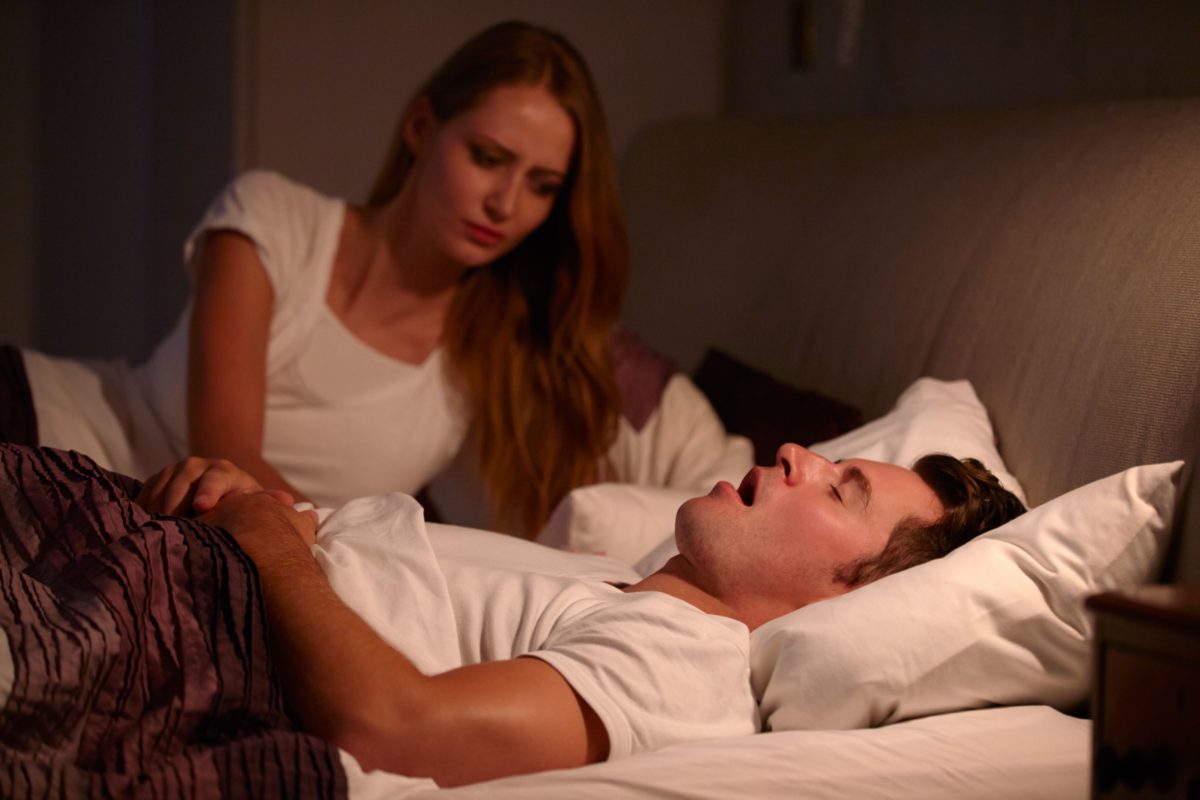Last updated on July 7th, 2023 at 02:28 pm
Sleep Apnoea, if left untreated, can potentially lead to serious health complications and even be life-threatening. While Sleep Apnoea itself is not directly fatal, it significantly increases the risk of developing various medical conditions that can have severe consequences.
Sleep Apnoea is a disorder characterised by pauses in breathing or shallow breathing during sleep. These pauses can last for a few seconds to a few minutes and occur multiple times throughout the night. The two main types of Sleep Apnoea are Obstructive Sleep Apnoea (OSA), caused by a physical blockage of the airway, and Central Sleep Apnoea (CSA), caused by a lack of respiratory effort.
The repeated disruptions in breathing during sleep can result in decreased oxygen levels in the blood and disrupted sleep patterns, leading to a range of complications.
Complications caused by untreated Sleep Apnoea
- Cardiovascular problems: OSA is associated with an increased risk of high blood pressure, heart disease, heart failure, irregular heart rhythms, and stroke. The intermittent drops in blood oxygen levels and the strain on the cardiovascular system can contribute to the development or worsening of these conditions.
- Daytime fatigue and cognitive impairment: Frequent interruptions in sleep prevent individuals with Sleep Apnoea from obtaining restorative sleep, leading to excessive daytime sleepiness, fatigue, and difficulties with concentration, memory, and overall cognitive function. These impairments can affect daily activities, work performance, and even increase the risk of accidents.
- Metabolic disorders: OSA has been linked to metabolic conditions such as insulin resistance, type 2 diabetes, and obesity. The mechanisms behind these associations are complex and involve hormonal dysregulation and changes in metabolism.
- Complications during surgery and anaesthesia: OSA can pose risks during surgical procedures and the administration of anaesthesia due to potential breathing difficulties, decreased oxygen levels, and increased complications during recovery.
- Accidents and decreased quality of life: Excessive daytime sleepiness and impaired cognitive function can increase the risk of accidents, both at work and while driving. Sleep Apnoea can also have a negative impact on overall quality of life, affecting relationships, mood, and general well-being.
OSA is widely associated with being overweight, and sleep deprivation can make you hungrier. Studies suggest that a worldwide obesity decrease would also decrease the number of people with Sleep Apnoea (1).
It is important to note that timely diagnosis and appropriate treatment of Sleep Apnoea can significantly reduce the associated risks and improve overall health outcomes. Continuous positive airway pressure (CPAP) therapy is a common treatment method, which involves using a device to deliver a steady stream of air pressure during sleep, keeping the airway open. Other treatment options include oral appliances, lifestyle changes, weight management, and, in some cases, surgical interventions.
Common signs of Obstructive Sleep Apnoea
Some common signs and symptoms of Obstructive Sleep Apnoea include:
- Loud and persistent snoring: Snoring is often a prominent symptom of OSA. The snoring is usually loud, chronic, and may be accompanied by gasping or choking sounds as breathing resumes after a pause.
- Excessive daytime sleepiness: People with Sleep Apnoea often feel excessively tired and sleepy during the day, regardless of the amount of sleep they had the night before. This persistent fatigue can interfere with daily activities and reduce overall productivity.
- Witnessed breathing pauses: In many cases, Sleep Apnoea is noticed by a partner or family member who observes the person stop breathing intermittently during sleep and then startle, choke or gasp as breathing resumes.
- Morning headaches: Sleep Apnoea can cause frequent awakenings during the night, leading to morning headaches that are often described as dull or throbbing in nature.
- Fragmented or restless sleep: Individuals with Sleep Apnoea may experience restless sleep, characterized by frequent awakenings, tossing, and turning, and a feeling of not being well-rested upon waking.
- Night-time sweating and nocturia: Some people with OSA may experience night sweats and frequent urination during the night.
- Difficulty concentrating and memory problems: Sleep Apnoea can impair cognitive function, leading to difficulties with concentration, memory, and overall cognitive performance.
- Irritability and mood changes: Sleep deprivation and interrupted sleep can contribute to irritability, mood swings, and a general decrease in overall well-being.
It’s important to note that these symptoms are not exclusive to Sleep Apnoea and can be caused by other conditions as well. If you suspect that you or someone you know may have Sleep Apnoea, it is recommended to consult a healthcare professional for a proper evaluation, diagnosis, and appropriate treatment.
Health risks associated with OSA
Untreated Sleep Apnoea means the brain gets starved of oxygen, causing the sufferer to wake up gasping, choking or snorting, which puts a strain on the whole body. Studies have found a relationship between Sleep Apnoea and cardiovascular diseases and other health complications. These include:
- Type 2 diabetes
- High blood pressure
- Heart disease
- Stroke
- Atrial fibrillation
Research estimates that 38,000 people die yearly from heart disease caused by untreated Sleep Apnoea (2). A 2008 study also found that 42% of severe Sleep Apnoea deaths were due to heart disease.
People who have died from Sleep Apnoea related conditions
You may not know this, but several well know TV and radio personalities have died due to OSA-related complications; these include:
- Footballer Reggie White
- Star Wars actress Carrie Fisher
- Singer Bappi Lahiri
- Can’t Buy Me Love actress Amanda Peterson
In 2022, 29-year-old Radio DJ Roman Kemp revealed he, too, suffers from OSA. This categorically goes against the usual implications that only people who are overweight have OSA. The truth is, anyone is at risk of developing the condition.
What should I do if I suspect I have OSA?
If you experiencing any of the systems described in this article, and are still concerned that you can die from Sleep Apnoea, it is advisable to consult a healthcare professional for a proper evaluation, diagnosis, and treatment plan. Taking a sleep test could save your life; it only takes one night to complete.
In-Home Sleep Test
An in-home sleep test is worn for just one night and measures your heart rate, body movements, snoring frequency and peripheral arterial tone. The number of breathing pauses is monitored to determine if OSA is present and if so, the severity using the Apnoea Hypopnoea Index.

At Intus Healthcare we provide a private and confidential in-home Sleep Test for Obstructive Sleep Apnoea.
We will provide a questionnaire and equipment to be worn at home; in the comfort of your own bed. Your sleep data, along with a health questionnaire, will be assessed by our independent NHS-trained sleep technicians. All sleep tests are confidential. Once completed you will have your result within 7 working days.
If you would like to know more about the possible treatments for OSA, we have prepared this useful article: CPAP Therapy – The Solution to Sleep Apnoea
Lifestyle changes to reduce OSA symptoms
- Changing sleeping position
- Weight loss
- Avoiding alcohol before bed
- Quitting smoking
- Breathing exercises
Need any help?
Contact us to speak with our friendly team.
References
- https://www.ncbi.nlm.nih.gov/pmc/articles/PMC5836788/
- https://www.sleepapnea.org/can-you-die-from-sleep-apnea/


